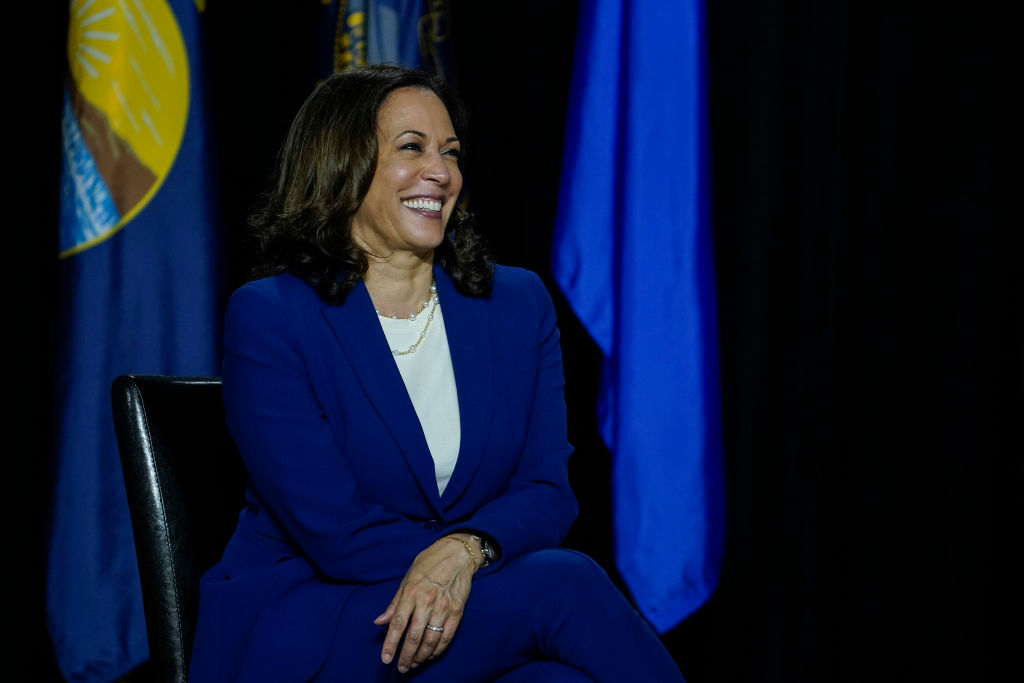Op-Ed: For National Security’s Sake, The U.S. Supreme Court Must Respect The Three Branches of Government

The U.S. Supreme Court building in Washington, D.C. | Source: Robert Alexander / Getty
In 1857, the U.S. Supreme Court heard arguments for the Dred Scott v. Sanford case. The ruling favored Sanford. Chief Justice Roger Taney issued an opinion that some regard as the worst issued by the Supreme Court. Chief Justice Taney’s opinion stated “…they [Blacks] had no rights which the white man was bound to respect…” The statement demonstrates the dangers when the Supreme Court’s function shifts from “interpreting the law to devising policy”.
Following the American Civil War and well into the 20th Century, the twelve words offered by Chief Justice Taney had ripple effects and became an informal policy that clearly expressed itself during the Jim Crow era. From the nation’s highest court, one justice abused their position and suggested a specific group of human beings had no rights.
Dred Scott was a human being. He was a man, and he had inalienable rights. There is no shield for “unjust laws and unjust policies.” The fact that slavery was lawful in the United States didn’t make it any less of a human atrocity. Chief Justice Taney was wrong in 1857, and he is wrong today.
Since the period of civil unrest following the murder of George Floyd in 2020, there has been increasing political backlash. Within the past twelve months, the backlash has expressed itself in the rulings of the Supreme Court. In recent months, the Supreme Court has offered rulings on the Chevron deference; homelessness; and presidential immunity.
The rulings affirm this is a time for speaking up. As Dr. Martin Luther King, Jr. suggested, “there comes a time when silence is betrayal.” Supporters of racial equity and democracy cannot be silent about the things that matter. Too much is at stake.

Dred Scott, circa 1830. | Source: Hulton Archive / Getty
In recent years, retired General Mark Milley has reminded the public about the importance of taking an oath and understanding it. According to Milley, members of the armed forces “take an oath to the Constitution, and they take an oath to the idea that is America.” In a like manner, Justices of the U.S. Supreme Court are sworn-in and they take an oath. In part, this oath is to administer justice. The oath does not permit Justices to use the bench to shape public policy through court rulings.
There is no justice in the Chevron deference ruling which has a clear impact on environmental protection. Although the U.S. may subscribe to free-market capitalism as a democracy, no “private or public” interest should be allowed to conduct activities that subject citizens to harm. Instead, private and public interests should mitigate the externalities that their activities produce.
There is no justice in the ruling to ban people from sleeping and camping in public places. Homelessness is a complex issue. Supreme Court Justices are not equipped to fix the nation’s housing woes. This is why housing policy is a function of the executive branch.
There is no justice in the presidential immunity decision. No person is above the law, including the President. Granting a former President immunity creates the appearance that the court is an instrument of the executive branch. Immunity is a policy decision that should be reserved for a constitutional convention.
Recent decisions by the Supreme Court — specifically the Chevron deference; the ruling on homelessness; and the ruling on presidential immunity — suggest the Supreme Court has become dangerously partisan and tone-deaf. These rulings are an attack on democracy, and they are un-American. We can’t have a strong democracy when environmental injustice and economic injustice persist. Equally important, we can’t have a strong democracy when the Supreme Court grants broad immunity to a felon; who was impeached by the U.S. Congress twice; and who was willing to endanger the life of his Vice President. In this case, a vice president who was committed to faithfully discharging his duties to certify the outcome of a national election and officiate the peaceful transfer of power.
As a mature institution, the Supreme Court has a duty to the Constitution and to administer justice. If Justices cannot faithfully and objectively execute their duties, they should vacate the bench. To do any less at the federal level will lead to a miscarriage of justice, and it will put our democracy at risk.
It is crucial we remember that democracy is not a static model. Also, the “idea that is America” is not a static model. Both are constantly being informed by new trends, opportunities, and challenges. For example, in 1860, our nation learned that unbridled and unfettered capitalism has its limits domestically. Eventually, our nation became divided and went to war over “market-failures” and “government failures” tied to the institutionalization of slavery. Following the Civil War, the federal government passed a business law that abolished a free-market practice that never should have been lawful. The law was the 13th Amendment to the U.S. Constitution. Without belaboring the point, the government should permit academic institutions to teach the unvarnished truth because history is a safeguard, and there is a market benefit to having safeguards in place that is greater than the scurrilous claim that teaching history is somehow traumatizing students.
It is time to stop gaslighting the public. It is time to stop using our children as political pawns. It is time to stop manipulating the three branches of government.
Carlton Eley is the Senior Director for Federal Strategies at Race Forward.
SEE ALSO:
If Kamala Harris Wins, A Supreme Court Pick Isn’t Likely. Biden Wants To Change That
The Black Ballot: Unraveling The Legacy Of Civil Rights And Political Shifts In America
The post Op-Ed: For National Security’s Sake, The U.S. Supreme Court Must Respect The Three Branches of Government appeared first on NewsOne.





